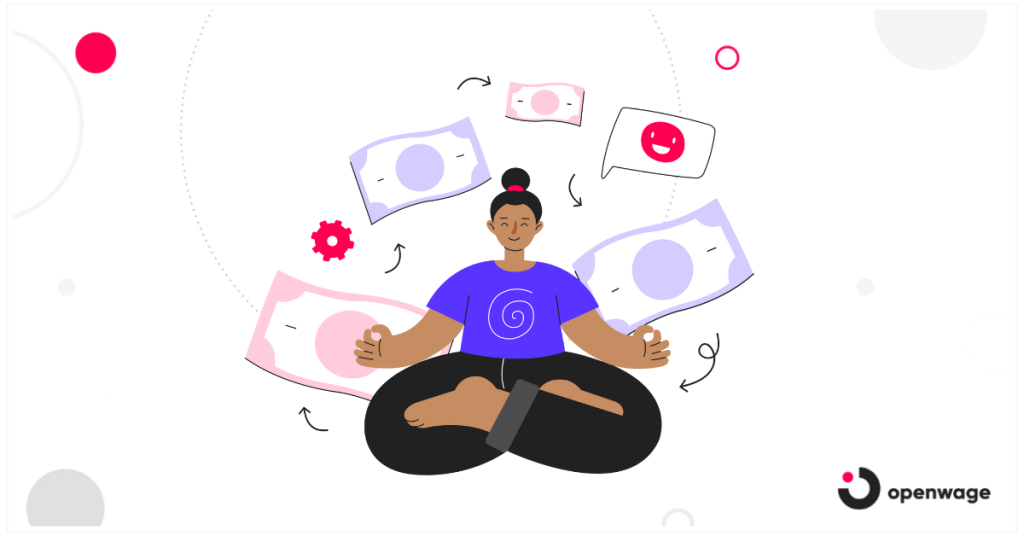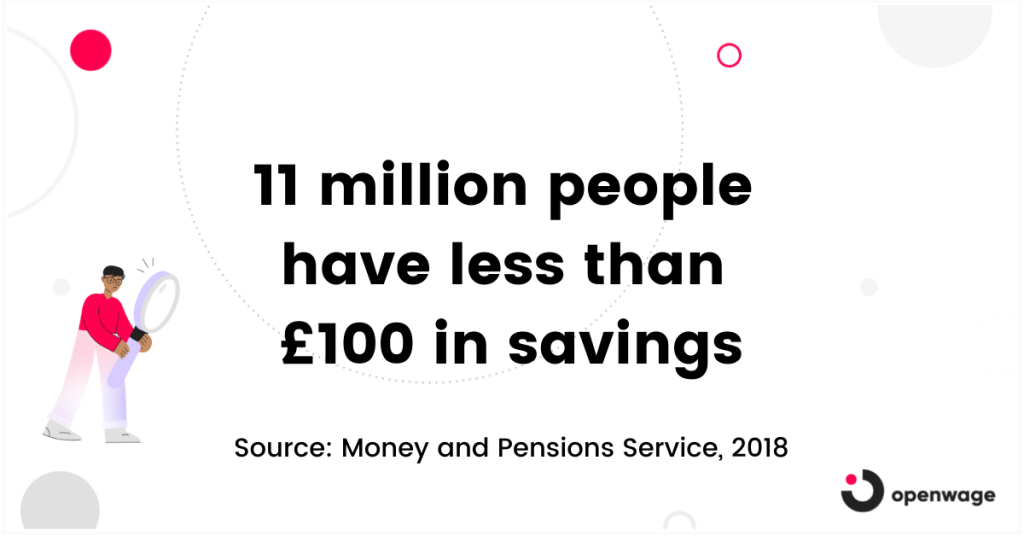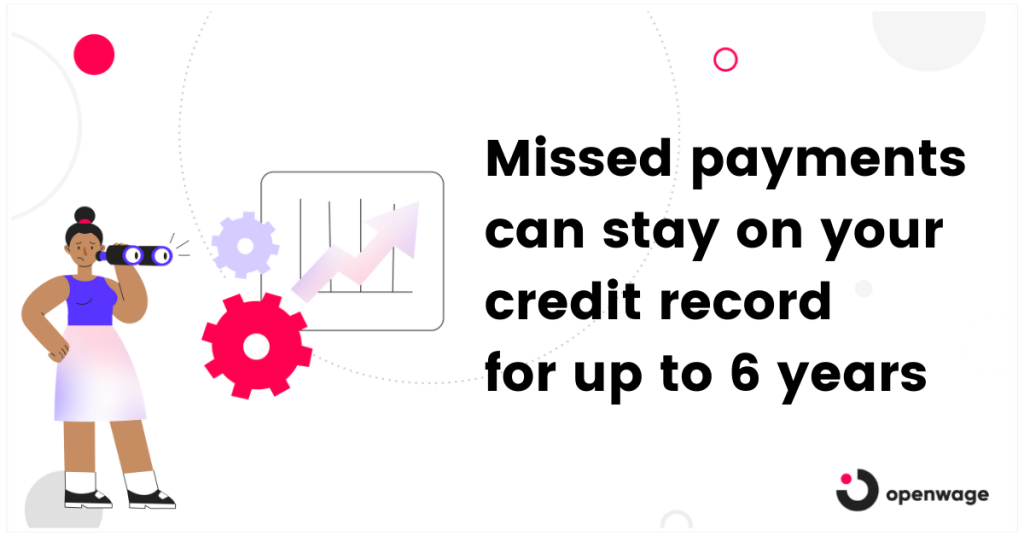
5 ways on-demand pay is good for your financial wellbeing
Financial wellbeing is about more than simply making ends meet. It promotes a sense of control over your money and the peace of mind that comes with being prepared for future challenges. Here we share five reasons why on-demand pay is good for your financial wellbeing.
Why you should care about you financial wellbeing
Poor financial wellbeing can have a detrimental effect on your mental health because they are intrinsically linked. The Money and Mental Health Policy Institute found that 46% of people in debt have a mental health problem. Out of that percentage, 39% said financial worries made their mental health issues worse.
How are companies supporting employee financial wellbeing?
Up until recently, employers have been focusing on supporting employees’ physical and mental wellbeing, with schemes like reduced gym membership, support helplines, and even ‘duvet days’.

Now, employers have recognised the importance of financial wellbeing. This is in part because of the negative impact on their bottom line that financially stressed employees can have.
Money worries affect how well employees perform at work, and it’s widely recognised that high-performing employees go hand-in-hand with company success. So to support employee financial wellbeing, more and more companies are offering on-demand pay as a financial wellbeing benefit to their employees.
What is on-demand pay?
On-demand pay is another term for earned wage access, early wage access, or salary advance. It’s a service that gives employees the freedom to access some of the pay they’ve already earned before their normal payday.
On-demand pay is designed to help people manage unexpected expenses or an urgent bill that can’t wait until payday.
Rising living costs and stagnant wages means financial wellbeing is more important that ever
When you consider the current financial climate, notably energy bills increasing, national insurance rises, inflation, and stagnant wages, offering on-demand pay to employees makes even more sense.

Anxiety around money is more widespread than ever and employees can’t simply forget about these worries when they’re working.
How is on-demand pay good for your financial wellbeing?
In these uncertain times when life seems to be getting more expensive, it’s more important than ever to find tools that promote your financial wellbeing by reducing financial stress or money worries.
Currently experiencing explosive popularity, on-demand pay empowers employees to:
- Break free from the financial stress caused by rigid pay cycles
- Feel more in control of their money
- Pay urgent bills without dipping into savings or resorting to expensive credit cards or predatory payday loans
Let’s break that down.
1. On-demand pay reduces anxiety about your finances
We all experience short-term cash flow issues from time to time, simply because financial surprises mean that some months you need more money than others. But monthly pay cycles are rigid and don’t allow you any financial flexibility.
Monthly pay cycles are ok if you have savings to fall back on. But data from the Money and Pensions Service shows that 11.5 million people in the UK have less than £100 in savings.
The result? Financial stress and anxiety that can affect all areas of your life, including your work.
The solution to this is to tap into the power of on-demand pay. Using Openwage allows you to access a portion of your pay when you need it. So there’s no need to borrow money using credit cards or dip into an overdraft when you need a short-term injection of money.
2. With on-demand pay, there’s no risk of missing a repayment
When you borrow on credit cards or take out a payday loan, there’s always a chance that you could miss a repayment.

Penalties for missed repayments can be extremely expensive and they can also stay on your credit record for up to six years. This can affect your chances of obtaining other credit including ‘good credit’ such as a mortgage.
On-demand pay from Openwage has been designed so you can’t access more than you’ve earned. It’s not a loan and therefore there are no repayments to make.
Any earnings you’ve transferred during the month are automatically deducted from your salary on your normal payday. So you receive your salary minus any on-demand pay and the small fee for each transfer. This happens automatically so there’s nothing for you to do.
3. Find your money calm with visibility over your earnings
Feeling more in control of your earnings can help you feel more positive and this allows you to live your best life. With the Openwage app, you can view:
- How much salary you’ve earned so far in your pay cycle
- How much on-demand pay you’ve transferred
- What fees you’ve been charged for any on-demand pay transfers
This visibility enables you to plan your outgoings more easily because you can see exactly how much you’ve earned. On-demand pay is great for those who want to stay in the black too. That’s because you can pay off a bill as soon as it arrives using the pay you’ve already earned that month.
This brings a sense of control over your money which promotes your financial wellbeing.
4. A low, fair fee helps you keep more of your money
Some lenders entice you in with claims that you can be approved for a loan in minutes and receive the money instantly. However, this comes at a high price.

The average APR over the course of the year for a payday loan can be up to 1,500% which compares to around 22% for a credit card.
The reason the percentage is so high with a payday loan is that the lender is taking a big risk in lending the borrower the money. That’s because when you take out a payday loan, you’re spending money you don’t have, at least at that moment.
Compare this with on-demand pay from Openwage, which isn’t any type of loan or line of credit. You’re only accessing the money that you’ve already earned, as opposed to borrowing ‘extra money’ from a lender that you later have to repay.
Find out how much on-demand pay costs.
5. Keep your zen when financial surprises happen
Unexpected costs happen to everyone – and they’re usually expensive. For example, the average cost of repairing a broken boiler is between £100 and £500 and car repair bills can go into the thousands.
This type of financial surprise can be hugely stressful when payday is a long way off and savings aren’t up to the job. In the past, a loan or credit card were usually the go-to solutions. But these involve high interest rates and a repayment schedule that can hang over you for months.
Unlike loans and credit cards that linger in your finances like a bad smell, the nature of on-demand pay means that it resets each pay day.
For example, if you’ve transferred £300 of your earnings for a boiler repair using on-demand pay, then on payday you’ll receive your normal salary minus £303 (£300 of on-demand pay plus a 1% transfer fee of £3).
With on-demand pay, you always know where you stand financially. So you don’t accumulate debt that can spiral out of control.
Life doesn’t wait for payday
In today’s world of flexible working hours and on-demand shopping, why do you have to wait until payday to get the money you’ve already earned?
On-demand pay from Openwage can help you feel more in control of what you earn and what you spend. This is vital for your financial wellbeing. When childcare fees rise temporarily or your energy bill is higher one month, you can meet these expenses without having to resort to expensive borrowing.
If you would like to get paid on your schedule with on-demand pay, you can fill in this form. We’ll get in touch with your HR team and show them how their employees and organisation can benefit from on-demand pay.
The information in this article is for general information only. It does not constitute professional advice from Openwage. Openwage is not a financial adviser. You should consider seeking independent legal, financial, taxation or other advice to check how the information in this document relates to your unique circumstances.

